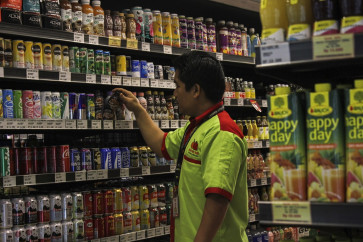Govt, int'l agencies asked to deal with foreign seamen 'problem'
The Indonesian Seafarersâ Association (KPI) has strongly urged the government and international agencies such as UN High Commissioner for Refugees (UNHCR), the WHO and the International Organization of Migration (IOM) to deal with foreign seafarers in the countryâs east, especially in Papua, West Papua, North Sulawesi and Maluku
Change text size
Gift Premium Articles
to Anyone

T
he Indonesian Seafarers' Association (KPI) has strongly urged the government and international agencies such as UN High Commissioner for Refugees (UNHCR), the WHO and the International Organization of Migration (IOM) to deal with foreign seafarers in the country's east, especially in Papua, West Papua, North Sulawesi and Maluku.
The KPI, which recently conducted a field survey of foreign seafarers in the region, revealed that the presence of around 6,000 foreign seafarers, mostly from Thailand, Myanmar, Laos, Cambodia, Vietnam and China, created problems for local residents in the region.
KPI executive president Hanafi Rustandi said that according to the survey, the foreign seafarers had not only taken job opportunities from local workers on fishing ships, but had also contributed to increasing crime on ships and in ports, as well as contributing to the spread of HIV/AIDS in the region.
'The Indonesian government should not turn a blind eye to the social problems caused by the foreign seamen. UNHCR and IOM cannot remain silent on the high level of unemployment in fishing communities in the region, increasing crime among seafarers and the transfer of HIV/AIDS to local residents via sexual workers in fishing ports in the region,' he told The Jakarta Post on Tuesday.
He revealed that most Thai fishing ships employed not only Thai seamen but also Rohingya workers who migrated from their home villages in Myanmar to Thailand.
'They have been employed on Thai fishing vessels without any training and medical tests and they have been abandoned and left jobless following the moratorium imposed by the Maritime Affairs and Fisheries Ministry on fishing vessels, with 3,000 or more gross tonnage (GT) in Indonesian waters.'
The KPI's survey found more than 500 foreign seamen had been abandoned in Ambon, Maluku, and hundreds of others in Merauke and Mimika in Papua; Fakfak and Sorong in West Papua; Benjina and Tual in Maluku and Bitung in North Sulawesi.
'Many foreign seamen from Myanmar and Thailand abandoned in Ambon frequently commit crimes and become drunk in the Tanjung Batu Merah red-light district in Ambon,' he said.
Hanafi said the KPI was concerned as the survey found that many foreign seamen admitted to having been infected by HIV and many others had been living with AIDS for years.
Hanafi pointed the finger at the government and relevant international agencies, as no action had been taken to deal with sexually transmitted diseases.
'In cooperation with local health workers, we have regularly campaigned for the use of condoms for seamen and sex workers but our efforts have been less effective due to the unhealthy behavior of local residents.'(+++)









